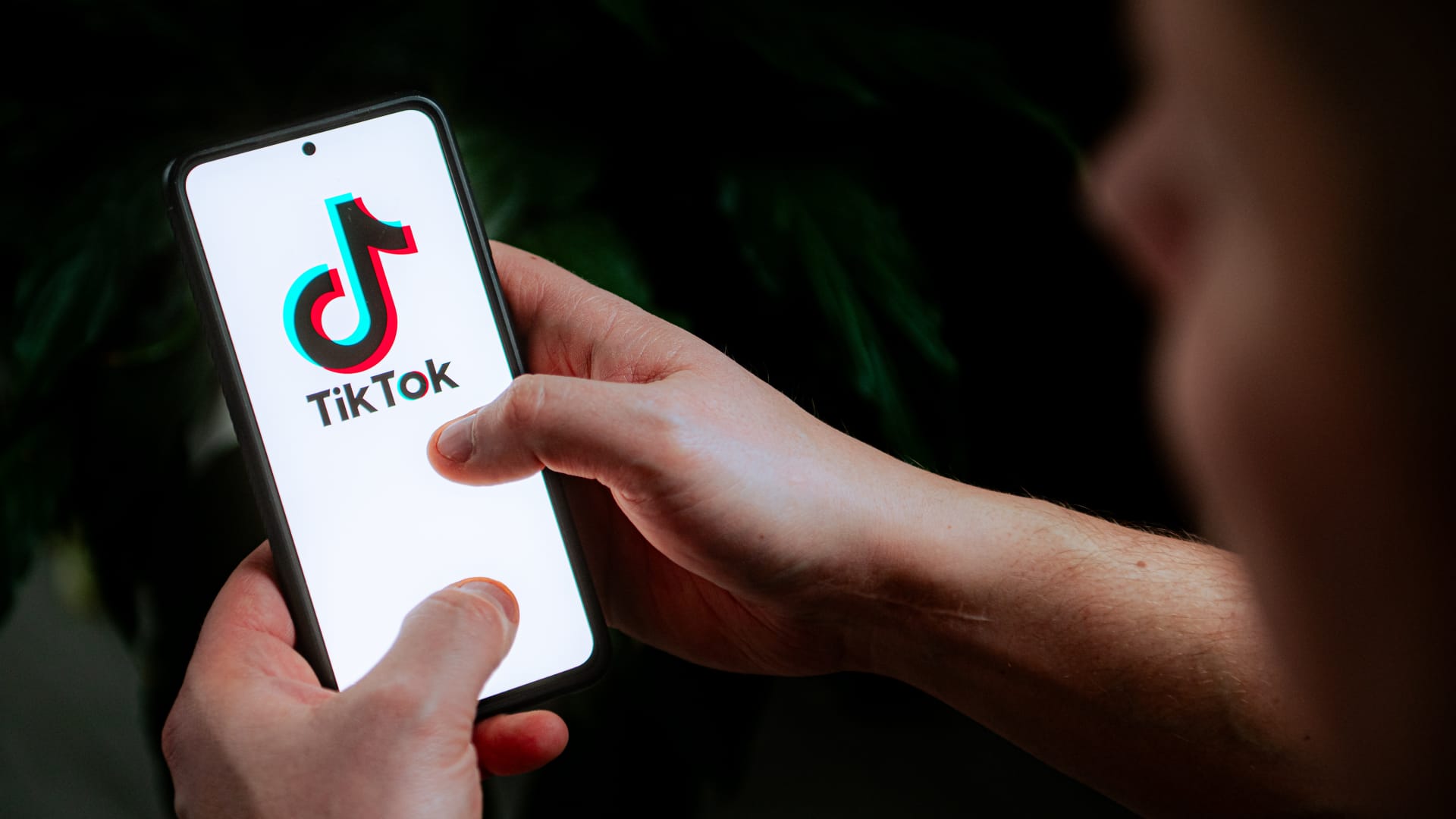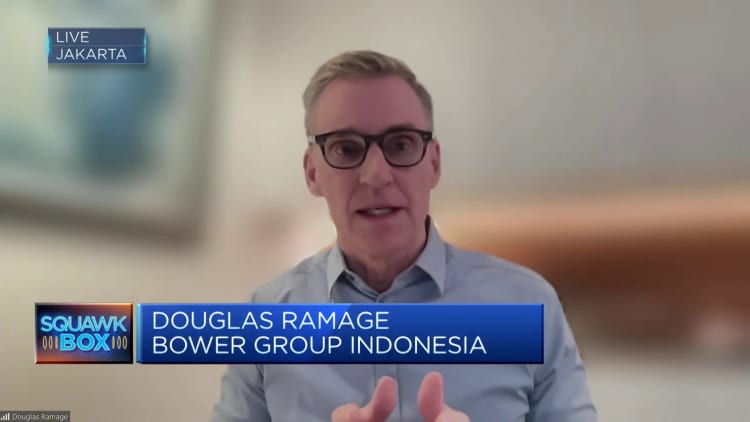
Indonesia’s presidential election is due 14 February and candidates are going all out to win over voters in this country of 274 million. With millennials and Gen Z voters making up 56.5% of the electorate campaigning is often done on social media. One platform in particular has emerged as key, TikTok.
Sopa Images | Lightrocket | Getty Images
JAKARTA — Indonesia’s presidential hopefuls are pulling out all stops to win over voters on social media ahead of the Feb. 14 election.
In the country of 274 million, millennials and Gen Z voters make up 56.5% of the electorate — and campaigning on social media is heating up.
One platform in particular has emerged as a key battleground: TikTok.
“In 2019, it was the Instagram election. This time it’s the TikTok election,” says Aryo Seno Bagaskoro, a young spokesperson for the presidential campaign of Ganjar Pranowo, the former governor of Central Java.
With 125 million monthly active users, Indonesia is TikTok’s second biggest market, making the platform key for Indonesians trying to get news and updates about the election.
All three candidates have taken note and are churning out youth-oriented content on TikTok, with Defense Minister Prabowo Subianto dancing for the crowds, the former governor of Jakarta Anies Baswedan courting K-pop fans, and former Central Java governor Ganjar Pranowo promoting penguin-related posts.
For Prabowo, the clear frontrunner who’s polling in the mid-40s, the messaging on TikTok fits into the wider “gemoy,” or cute, image of his presidential campaign.
The approach is markedly different from the macho image adopted by 72-year-old during his previous runs for the presidency in 2014 and 2019.
Rather than videos of him arriving at rallies on the back of stallions and rousing crowds with nationalist speeches, the most popular content on TikTok has portrayed him as having a sensitive — even vulnerable — side.

One of the most popular campaign posts on TikTok, with 49 million views, appeared to show Prabowo on the verge of tears after tough questioning in the second presidential debate. Many supporters of Prabowo, often young women, posted videos of themselves weeping in solidarity and alleging that Prabowo was a victim of bias.
Anies’ signature has been live broadcasts on TikTok dubbed locally as “Desak Anies,” or “Interrogate Anies.”
Polling in the mid-twenties, he is running neck-and-neck with Ganjar, and cultivating followers who send questions directly to him. Topics vary from his political program to advice on first dates.
From K-pop to ‘Top Gun’
Anies has found unexpected popularity among K-pop fans, mainly young women, belying his past associations with conservative Islam.
One of his supporters is a 22-year-old female student who posts on social media platform X about Anies and his campaign using Korean hangul captions. Much of the footage posted is taken from TikTok.
“He is the perfect fit for K-popification,” the owner of the account told CNBC, asking not to be named for fear of backlash.
“When he did live TikTok, the background is like the ones used by K-pop idols, maybe it was the curtain.”
The Anies campaign and its official supporter groups have taken note, occasionally sending her photos or videos they’d like her to promote.
The Ganjar campaign has gimmicks of its own too, such as “Top Gun”-style jackets and penguin symbols. But, according to his campaign team, they are most interested in videos of him interacting naturally with voters on the ground to showcase his humble roots.
“TikTok has unique characteristics. The algorithm values so much the authenticity and the originality of the videos,” says Karaniya Dharmasaputra, deputy for media channels on the Ganjar campaign team. “On TikTok we prefer an unpolished kind of video. Instagram, I think values more the polished content.”
Older politicians have had to embark on a crash course for TikTok campaigning.
Ganjar’s running mate, Mahfud MD has taken a lead role here, copying Anies’ signature live broadcasts. But introducing the 66-year-old minister and former chief justice of the constitutional court to the platform was tricky at first.
“When we first encouraged Pak Mahfud to do a livestream, it was a bit awkward to be very honest,” said Karaniya. “But he adapted very quickly.”
Fake news fears
With the power of TikTok becoming clear, worries about its potential for misuse have also grown.
Misinformation has been a major issue on social media in past Indonesian elections, with outright lies spreading widely boosted by bots and “buzzers,” persons employed to churn out and promote propaganda by one group or another.
TikTok is now trying to limit not only the spread of misinformation, but also its role as a platform for political messages.
Paid political advertising or fundraising by politicians and political parties is not allowed on the social media platform. The company has also forged partnerships with government bodies, local NGOs, and newswire agency Agence-France Presse to combat misinformation.
“The short video format used on TikTok means most of the misinformation we see circulating on the platform consists of edited clips or footage shared out of context with a misleading or false caption,” said a representative for AFP.
Some examples include clips doctored to make them appear like crowds at a Prabowo rally — who were in fact his supporters — were cheering on his opponents, one claiming that Anies had converted to Christianity, and another of a leading journalist endorsing Prabowo.
According to Mafindo, one of the NGOs working with TikTok, between January and November last year, just 7.4% of the hoaxes they recorded and helped debunk were on TikTok.
“It’s on YouTube and Facebook that we found the most disinformation, but I think TikTok is catching up. Meaning a lot of hoaxes are now happening on TikTok,” said Septiaji Nugroho, chairperson of Mafindo.
